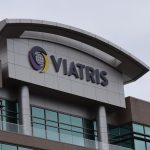Somatostatin Analogs Market Expected to Reach $10 Billion by 2035, New Research Reveals

The global somatostatin analogs market is poised for significant expansion, with a projected Compound Annual Growth Rate (CAGR) of approximately 6% between 2023 and 2035. By the end of 2035, it is expected to achieve a remarkable revenue milestone of USD 10 billion, compared to its 2022 revenue of roughly USD 6 billion.
The driving force behind this substantial growth is the increasing prevalence of hormonal imbalances in women, leading to conditions such as Polycystic Ovary Syndrome (PCOS) and Polycystic Ovarian Disease (PCOD), affecting an estimated 4% to 20% of the global population. The World Health Organization (WHO) reports that approximately 116 million women, nearly 3.4% of women worldwide, are afflicted by PCOS. Among patients with hyperinsulinaemic PCOS, octreotide, a long-acting somatostatin analog, has shown to be effective in reducing insulin levels, LH levels, and androgen concentrations.
One significant factor contributing to the market’s growth is the rising prevalence of acromegaly, a rare pituitary gland disorder characterized by excessive growth hormone secretion. With an incidence rate of 28-137 cases per million people worldwide, acromegaly presents symptoms such as enlarged hands and feet and facial changes. Somatostatin analogs are often employed in the management of acromegaly, either as a first-line treatment or as an additional therapy post-surgery.
Notably, the North American region is expected to lead the market due to the rising cases of neuroendocrine tumors and pancreatic NETs in the United States. In Asia-Pacific, a significant rise in PCOD cases, affecting up to 20% of Indian women, is expected to drive the demand for somatostatin analogs. These compounds play a crucial role in targeting specific receptors and pathways, aligning well with the concept of personalized medicine and are particularly utilized by healthcare providers for cancer treatment.
The market features prominent players such as Sun Pharmaceutical Industries Limited, Novartis AG, and Ipsen Pharma, and is marked by notable developments, including commercialization agreements and strategic acquisitions aimed at expanding business portfolios and treatment options in the renal medicines sector.





